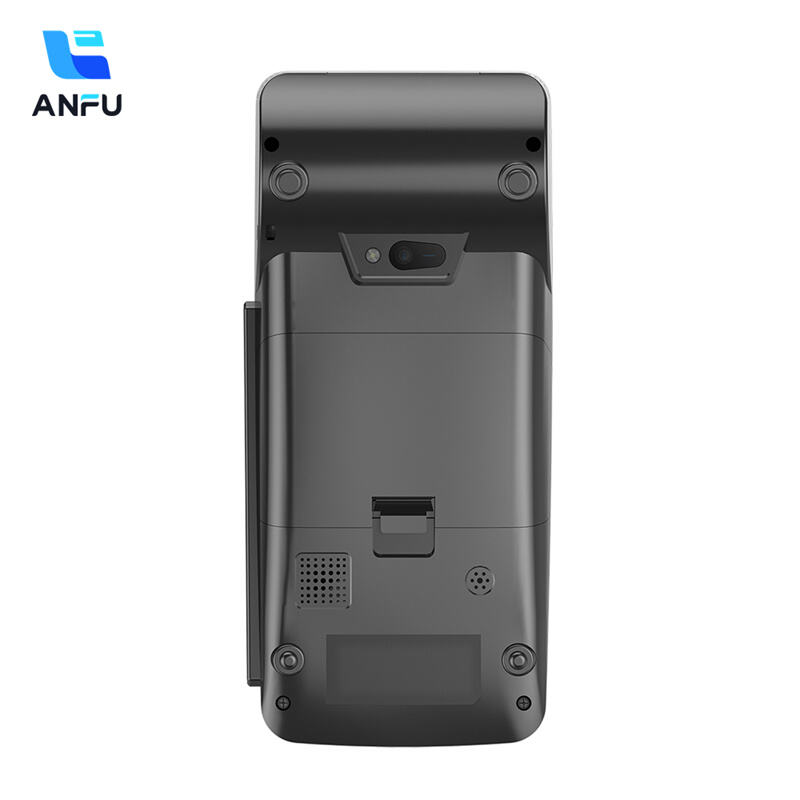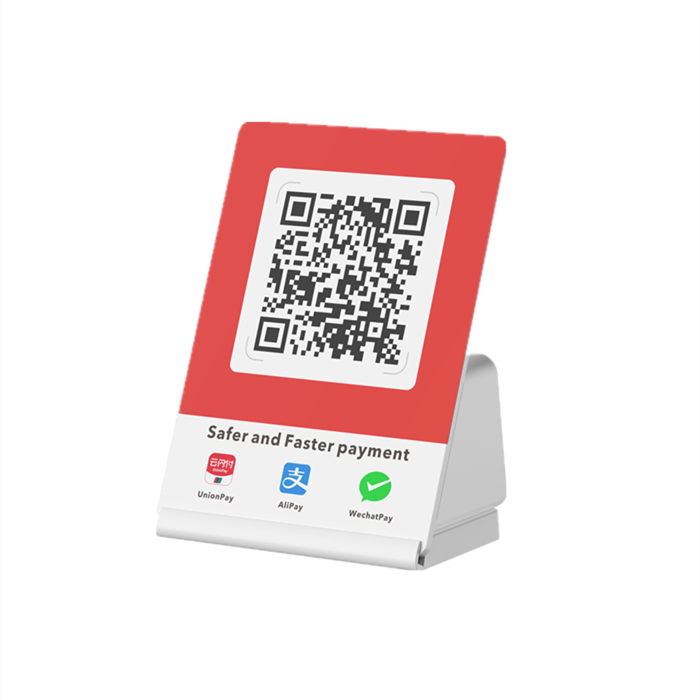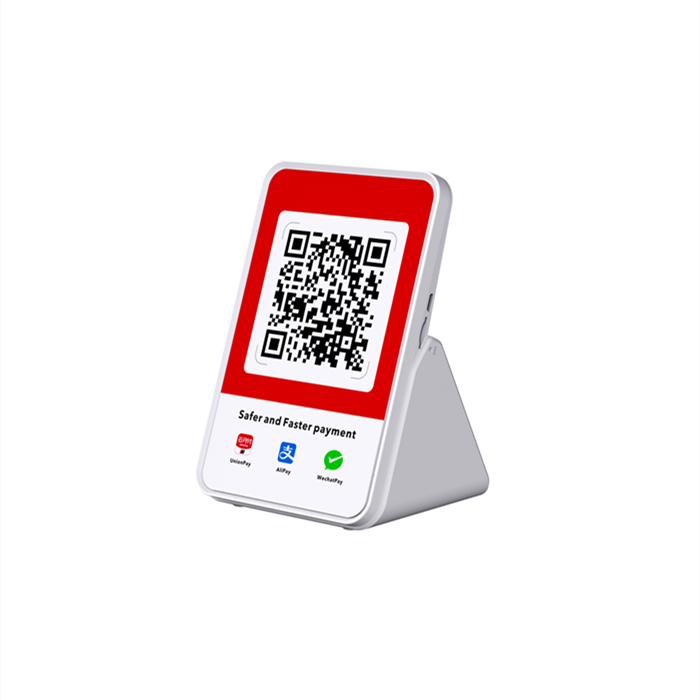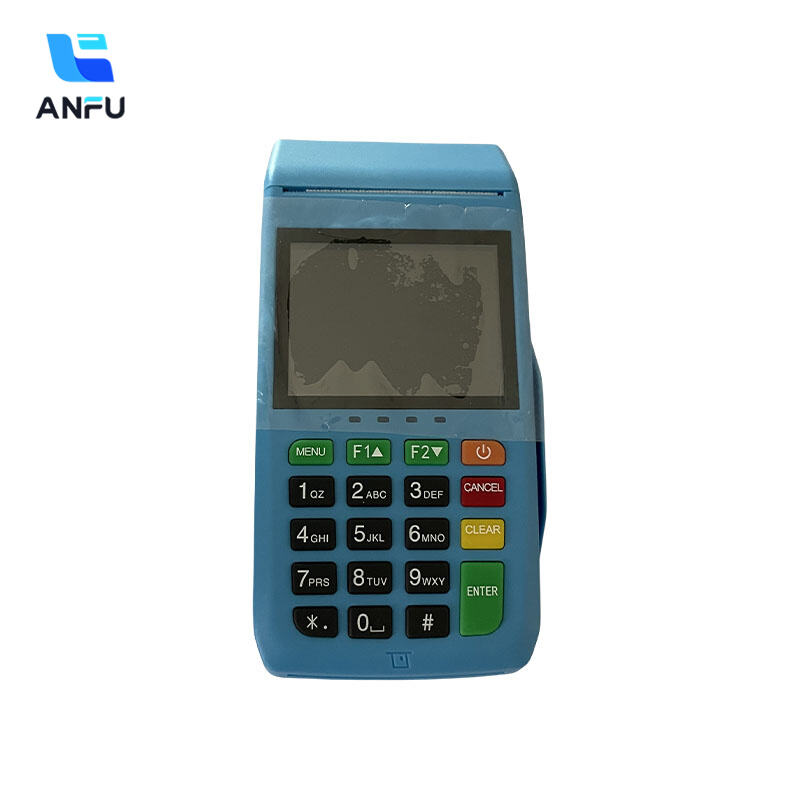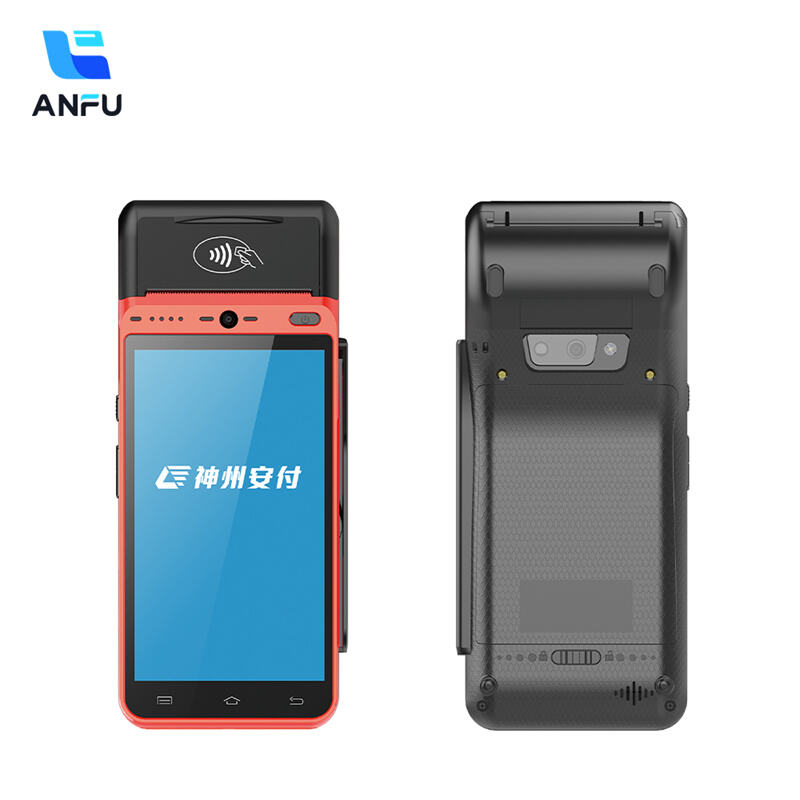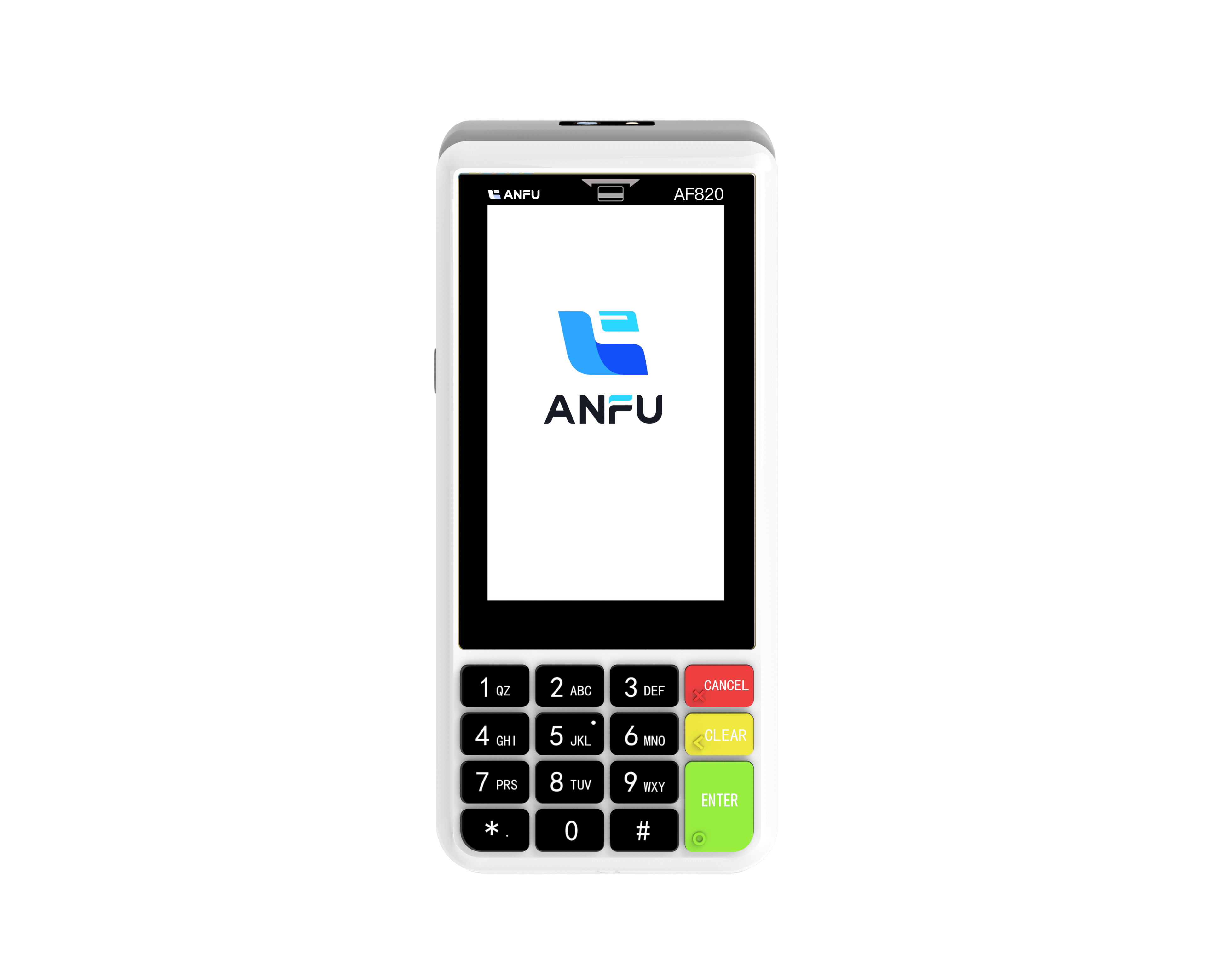Android POS առևտրի համար. Պահեստատեղեկության հաճախորդների ներգրավման գործիքներ
Android POS CRM-ի ինտեգրում թիրախային հաճախորդների փոխազդեցության համար
Միասնական հաճախորդների պրոֆիլների ստեղծում
Ընկերությունները, որոնք ցանկանում են ավելի լավ հաճախորդների փորձ ստանալ, ստիպված են ստեղծել այդպիսի միասնական հաճախորդների պրոֆիլներ: Երբ ընկերությունները միավորում են բոլոր այդ տեղեկությունները հաճախորդների մասին տարբեր կետերից, նրանք շատ ավելի հստակ նկարագիր են ստանում նրա մասին, թե ինչ են իրականում ցանկանում նրանց հաճախորդները: Android POS համակարգերը հնարավորություն են տալիս այս ամենը իրականացնել առցանց և խանութում գործողությունները միացնելով: Սա օգնում է խանութներին հասկանալ, թե ինչպես են մարդիկ գնումներ կատարում և ճիշտ խմբավորել նրանց մարքեթինգի համար: Մենք նաև տեսել ենք, որ գործնականում աշխատում է: Վերցրեք օրինակ մի շղթայական հագուստի խանութ, որը սկսեց օգտագործել այդ ինտեգրված համակարգերը իր բոլոր մասնաճյուղերում: Նրանք սկսեցին ուղարկել անհատական առաջարկներ գնումների իրական սովորությունների հիման վրա, ոչ թե ենթադրությունների: Վեց ամսվա ընթացքում նրանց ամսական վաճառքը աճեց մոտ 30%-ով՝ առանց գների և ապրանքների փոփոխության: Երբ մտածում ես, իհարկե տրամաբանական է:
Վստահության ծրագրի ավտոմատացում
Երբ խոսքը վերաբերում է Android POS համակարգերում հավատարմության ծրագրերին, ավտոմատացումը բերում է մի քանի առավելություններ: Այդ կարգավորումները նվազեցնում են ձեռքով կատարվող աշխատանքները և փոխարինում են դրանք ավելի մատչելի տարբերակներով, ինչպես նաև հաճախորդները ավելի երկար մնում են հավատարիմ, երբ տեսնում են, որ նրանց հավատարմությունը ճանաչվում է: Ուսումնասիրությունները ցույց են տվել մի հետաքրքիր փաստ ավտոմատացված հավատարմության ծրագրերով առևտրային կազմակերպությունների մասին. ծրագրերին միացած մարդիկ ավելի քան 47% ավելի հաճախ են վերադառնում: Android POS-ի հիմնական առավելությունը նրա ճկունությունն է անհատական հավատարմության փորձեր ստեղծելու հարցում՝ հիմնված առանձին հաճախորդների ցանկությունների վրա: Կազմակերպությունները կարող են ավելացնել հատուկ առաջարկներ կամ միավորներ, որոնք իրոք կարևոր են տարբեր սպառողների համար: Այս տեսակի հարմարեցված մոտեցումը թույլ է տալիս խանութներին ավելի լավ բավարարել հաճախորդների սպասումները և ամրապնդել կապերը խանութի սեփականատերերի և մշտական հաճախորդների միջև, ինչը վերջապես բոլորին հետ է բերում ավելի շատ գնումների:
Գնման Պատմության Հիման Վրա Ստեղծված Խրախույսներ
Նայելով այն ապրանքներին, որոնք հաճախորդները գնել են ավելի վաղ, ձեռնարկությունները կարողանում են ստեղծել ավելի լավ խթաններ, որոնք համապատասխանում են մարդկանց իրական ցանկություններին: Երբ ընկերությունները վերլուծում են անցյալում ձեռք բերված ապրանքները, նրանք կարողանում են նկատել հաճախորդների կողմից գնվող և հետաքրքրություն առաջացրած ապրանքների մի շարք միտումներ: Այդ տեղեկությունն իրենց թույլ է տալիս մշակել առաջարկներ, որոնք համապատասխանում են տարբեր հաճախորդների խմբերի պահանջներին: Ուսումնասիրությունները ցույց են տվել, որ այն դեպքերում, երբ խթանները համապատասխանում են հաճախորդների հետաքրքրությանը, վաճառքի փոխարկումը կատարվում է սովորական գովազդների դեպքում ստացված ցուցանիշից 10-20 տոկոսով ավելի բարձր: Android հիմքով վաճառքի վայրի համակարգերը թույլ են տալիս այս վերլուծությունը իրականացնել ֆոնում՝ միավորելով գործարքների տվյալները, որպեսզի շուկայավարները իմանան, թե որտեղ է անհրաժեշտ կենտրոնանալ իրենց ջանքերը: Այդ տեխնոլոգիան օգտագործող խանութները սովորաբար ավելի արդյունավետ խթաններ են իրականացնում, քանի որ դրանք հիմնված են իրական գնման վարքի վրա, ոչ թե ենթադրությունների վրա, ինչը հաճախորդների ավելի մեծ բավարարվածություն է ապահովում և նրանց կրկին վերադառնալու հավանականությունը մեծացնում է:
Նախազգուշացումներ ապրանքների առկայության մասին
Երբ ապրանքները վերադառնում են առկայության տակ, իրական ժամանակի հարթակները մեծ նշանակություն ունեն սպառողների համար, ովքեր սպասում են ցանկացած իրի: Այդ տեղեկացումները նվազեցնում են այն ձանձրալի իրավիճակները, երբ մարդիկ թողնում են իրենց առկայ գործողությունները, քանի որ ցանկացած իր այլևս առկա չէ, ինչը նշանակում է ավելի քիչ կորցրած վաճառք մանրածախ վաճառողների համար: Տարբեր ոլորտների մանրածախ վաճառողներ հաջողությամբ կիրառել են այդպիսի հարթակներ: Վերցրեք, օրինակ, Android հիմքով վաճառքի կետային կայանները, որոնք թույլ են տալիս խանութներին անմիջապես թարմացնել ապրանքագծի կարգավիճակը, ուստի սպառողները անմիջապես տեղեկացվում են, երբ այն իրը, որին նրանք հետևել են, կրկին հասանելի է դառնում: Արդյունքը? Բավարար հաճախորդներ, ովքեր շարունակում են հետաքրքրվել ապրանքանիշերով և իրականում ավարտում են իրենց գնումները, ոչ թե հրաժարվում և հեռանում:
Արհեստական ինտելեկտով ապահովված ապրանքների ցուցադրում
Արհեստական ինտելեկտի միջոցով ապրանքային խորհուրդները փոխում են խաղի կանոնները ձեռնարկությունների համար, որոնք ցանկանում են ավելի լավ կապ հաստատել գնորդների հետ: Այս խելացի խորհուրդները ուսումնասիրում են, թե ինչ են գնում մարդիկ և ինչպես են խանութ անում ինտերնետում, որպեսզի առաջարկեն ապրանքներ, որոնք իսկապես համապատասխանում են նրանց հետաքրքրություններին: Խանութներն էլ իրական արդյունքներ են տեսնում՝ շատ խանութներ հայտնում են միջին պատվերների մեծացում այդ խորհրդատվական շարժիչները ներդնելուց հետո: Անդրոիդի վաճառքի կետերի համակարգերը շատ լավ են համատեղելի են ԱԻ տեխնոլոգիաների հետ, թույլ տալով ֆիզիկական խանութներին հաճախորդներին առաջարկել մի բան, որը նման է այն առցանց առևտրային կայքերի կողմից առաջարկվողին: Վերցրեք, օրինակ, սուրճի խանութները՝ երբ մարդ գնում է լատտե մեքենա, համակարգը կարող է առաջարկել հեղուկ համեմունքներ կամ մաքրման հավաքածուներ այդ մեքենայի հետ միասին: Այս մտածելակերպը ոչ միայն հաճախորդների ավելի մեծ բավարարում է ապահովում, այլ նաև օգնում է շահույթը մեծացնել ժամանակի ընթացքում՝ կրկնակի գնումների հաճախադեպության մեծացմամբ:
Լրացուցիչ վաճառքի հնարավորություններ վճարման ընթացքում
Լրացուցիչ ապրանքների վաճառքը վճարման պահին մնում է մանրածախ վաճառքողների շահույթը մեծացնելու ամենակարևոր միջոցներից մեկը: Երբ հաճախորդները արդեն ինչ-որ բան են գնում, հարաբերակից ապրանքների առաջարկը հաճախ բերում է նրանց ընդհանուր ծախսերի ավելացմանը: Այն մանրավաճառողները, ովքեր լավ են տիրապետում այս գործընթացին, իրական բարելավումներ են տեսնում վաճառքի ցուցանիշներում: Անդրոիդ հիմքով վաճառքի կետի համակարգերը այս գործում մեծ օգնություն են ցուցաբերում, քանի որ կարող են վերլուծել հաճախորդի պատմությունը և ինքնաբերաբար առաջարկել համապատասխան լրացումներ: Այս խելացի առաջարկները նշանակում են, որ ձեռնարկությունները չեն բաց թողնում վաճառքի հնարավոր հնարավորությունները զբաղված պահերին: Շատ խանութներ հաղորդում են 10%-ից մինչև 30% աճ տեսնել ավանդական խաչաձև վաճառքի տեխնիկան իրենց թվային համակարգերով իրականացնելուց հետո:
Ծովային Խորհրդատվություններ Պլանշետի Միջոցով
Այն տաբլետները, որոնք օգտագործվում են խանութներում խորհրդատվության ընթացքում, իսկապես մեծացնում են հաճախորդների ներգրավվածությունը և սովորաբար բարելավում են սպասարկման մակարդակը: Վաճառողները կարող են այդ սարքերով անմիջապես ստուգել ապրանքների մանրամասները, որի շնորհիվ ավելի հարմարեցված խորհուրդներ են տալիս և աջակցում են այն պահին, երբ այդ անհրաժեշտ է, ինչն առևտրի գործընթացը շատ ավելի հեշտացնում է: Շատ խանութներ սկսել են իրենց վաճառքի ռազմավարություններում օգտագործել տաբլետներ՝ լավ արդյունքներով: Վերցրեք, օրինակ, Apple-ը, որն այդ ուղղությամբ մեծ հաջողության է հասել՝ թույլատվելով անձնակազմին տաբլետների միջոցով ինտերակտիվ ցուցադրել ապրանքները, ինչը հաճախորդները գնահատում են և նրանց հետ վերադառնում են նորից: Android վաճառքի կետերի համակարգերը ևս համատեղելի են այս կարգավորումների հետ, քանի որ աշխատակիցներին թույլատվում են ապահովագրության մնացորդները և անցյալ գնումների պատմությունը արագ ստուգել, ինչն այն է, ինչ հաճախորդները ցանկանում են, նույնիսկ նրանց հարցնելուց առաջ:
Բջջային POS հարթակ հերթերի կրճատման համար
Շարժական վաճառքի կետի համակարգերը իսկապես կրճատում են սպասման ժամանակը և ամբողջապես բարելավում են գնորդների բավարարվածությունը: Այսօրվա դրությամբ աշխատակիցները կարող են վճարումներ ընդունել խանութի ցանկացած տեղում, ուստի մարդիկ ավելի շատ չեն պետք հերթ կանգնեն սովորական գրանցման սարքերի մոտ: Ինչպիսի՞ արդյունք է դա տալիս. կարճ հերթեր և բոլորի համար ավելի լավ փորձառություն: Որոշ հետազոտություններ ցույց են տվել, որ այդպիսի լուծումներ ներդնող խանութներում հաճախորդների սպասման ժամանակը կրճատվել է մոտ 30%-ով, ինչը խոսում է դրանց արդյունավետության մասին: Փոքր բուտիկներից մինչև խոշոր ճաշարանների ցանցեր՝ տարբեր ոլորտների բիզնեսներ ընդունել են շարժական POS տեխնոլոգիան, քանի որ այն ավելի լավ է աշխատում: Գործարքները ավելի արագ են իրականանում, երբ աշխատակիցները հանդիպակաց չեն մնում հաշվապահական սեղանների հետ, և հենց այդ հարմարությունն է հիշատակվում որպես հիմնական պատճառ, թե ինչու են ընկերությունները ներդնում այդպիսի համակարգեր, նույնիսկ եթե սկզբնական ծախսերը բարձր են:
Ծնկոց-և-Վերցրու աշխատանքային գործընթացների օպտիմալացում
Կտտուց-ու-հավաքի մոդելը հաճախորդների համար կյանքն ավելի հեշտ է դարձնում՝ միևնույն ժամանակ խանութներին օգնելով ավելի շատ ապրանք վաճառել: Շուկայայցները կարող են իրենց առցանց գնումները վերցնել տեղական խանութներից ցանկացած պահի, ինչը նրանց տալիս է ժամանակ խնայելու և փոխադրման ծախսերից խուսափելու հնարավորություն: Խանութավարները նկատել են, որ նույնիսկ մի հետաքրքիր բան է տեղի ունենում: Այն խանութները, որոնք առաջարկում են լավ կտտուց-ու-հավաքի տարբերակներ, սովորաբար հաճախորդներին կրկին և կրկին իրենց մոտ են պահում: Վերցրեք, օրինակ, սննդի առևտրի ցանցերը՝ շատերը հայտնում են հաճախորդների բավարարվածության ավելի բարձր մակարդակի ցուցանիշներ այդ ծառայությունը ներդնելուց հետո: Անդրոիդ հիմքով վաճառքի վերահսկման համակարգերը իսկապես օգնում են գործերը հաջողությամբ ղեկավարել հետին տարածքներում: Այդ սարքերը միացնում են ապրանքագրանցումը խանութի աշխատակիցների հետ, այնպես որ երբ մարդիկ գան իրենց պատվերները վերցնելու, ամեն ինչ պատրաստ է լինում: Փոքր ձեռնարկատերերի համար հատկապես այդպիսի տեխնոլոգիան նշանակում է ավելի լավ վերահսկողություն գործողությունների վրա և ավելի բավարար մշտական հաճախորդներ, ովքեր գնահատում են խնդիրներից ազատ վերցնելու փորձը:
PCI-DSS սերտիֆիկացված գանձապետական անվտանգություն
Կազմակերպությունների համար, որոնք վճարային քարտերի մշակման գործընթացում են, PCI-DSS-ի հավաստագրում ստանալը կարևոր է, քանի որ այն ապահովում է այդ գործարքների անվտանգությունը և պաշտպանում է հաճախորդների մասնավոր տվյալները: Վճարային քարտերի տվյալների անվտանգության ստանդարտը (PCI-DSS) սահմանում է կանոններ, որոնց հետևելը պարտադիր է ընկերությունների համար, որպեսզի վճարումների մշակումը ապահով լինի հարձակումներից, որոնք փորձում են գողանալ տվյալները: Երբ ընկերությունը համապատասխանում է այդ ստանդարտներին, ապա գործարքները ավելի անվտանգ են դառնում և հաճախորդների վստահությունը ամրապնդվում է, քանի որ նրանք ցանկանում են իմանալ, որ նրանց գումարը վտանգում չէ: Շատ գնորդներ այն խանութներում են գնում, որտեղ կարծում են, որ անվտանգությունը կարևոր է: Հատկապես այն առևտրականները, ովքեր օգտագործում են Android օպերացիոն համակարգով վաճառքի կետեր, շահում են այդ հավաստագրումից, քանի որ այսօր շատ տարածված է բջջային վճարումները: PCI-DSS-ի նշանը կայքում կամ խանութի դռներին հաճախորդներին տալիս է հանգստացնող զգացում, որ նրանց ֆինանսական տվյալները չեն հայտնվի սխալ ձեռքերում վճարման պահին:
Թոքենացում կրկնվող գնումների համար
Տոկենացումը հնարավորություն է տալիս հաճախորդների վճարման տվյալները պաշտպանել, հատկապես կրկնվող վճարումների դեպքում: Այս համակարգը գործում է իրական վճարային քարտերի համարները փոխարինելով պատահական տոկեններով, որոնք գողացվելու դեպքում ոչինչ չեն նշանակում, ինչը վճարումների ընթացքում կրճատում է խարդախության ռիսկերը: Այն ընկերությունները, որոնք անցել են այս մեթոդին, նշում են խարդախության դեպքերի նվազումը: Որոշ հետազոտություններ ցույց են տվել, որ որոշ դեպքերում այդ ցուցանիշը նվազել է 30-40 տոկոսով: Շատ Android վաճառքի կետերի կարգավորումները հեշտությամբ կարող են աշխատել տոկենացման հետ, որը առևտրականներին տալիս է պարզ միջոց ամսական բաժանորդագրությունների կամ կրկնվող գնումների պաշտպանության համար: Հատկապես փոքր ձեռնարկությունների համար տոկենացման ներդրումը նշանակում է ավելի ապահով գումարների կառավարում և հաճախորդների վստահության կառուցում, ովքեր ցանկանում են համոզված լինել, որ իրենց տվյալները պաշտպանված են:
Ծածկագրված տվյալների հասանելիություն ըստ դերերի
Դերային հասանելիության վերահսկումը պարտադիր է, երբ գործ ունենք զգայուն հաճախորդների տեղեկությունների հետ: Այս համակարգը աշխատում է սահմանափակելով այն տեղեկությունները, որոնք կարող են տեսնել աշխատանքային դերերի հիման վրա: Դրամապանակներին անհրաժեշտ չէ ֆինանսական գրառումների հասանելիությունը, իսկ ղեկավարներին կարող է անհրաժեշտ լինել ամբողջովին այլ թույլատվություն: Մեծամասնությունը փորձագետների համաձայն ընկերությունները պետք է սահմանեն հստակ կանոններ այն մասին, թե ով ինչ տեղեկությունների հասանելիություն ունի և պարբերաբար ստուգեն այդ թույլատվությունները: Android վաճառքի կետի համակարգերը լավ աշխատում են այս մոտեցման հետ, քանի որ թույլատվությունները կարող են հարմարեցվել ըստ անհատական կարիքների: Երբ այս վերահսկումները ճիշտ իրականացվեն, օգնում են պաշտպանել տվյալները, նվազեցնել հնարավոր խախտումները և վստահություն ստեղծել հաճախորդների շրջանում, ովքեր ցանկանում են համոզված լինել, որ իրենց անձնական տեղեկությունները պաշտպանված են:
Համարվող ապարատներ
Խիստ նորություններ
-
Խելացի քարտ 2019
2024-01-23
-
Trustech 2019
2024-01-12
-
Futurecom 2019
2024-01-12
-
Անխափան վճարումներ Ասիա 2020
2024-01-12
-
Մոտավոր Արեւելք 2022
2024-01-12

 EN
EN
 AR
AR
 BG
BG
 CS
CS
 DA
DA
 NL
NL
 FR
FR
 IT
IT
 JA
JA
 KO
KO
 PL
PL
 PT
PT
 RU
RU
 ES
ES
 TL
TL
 ID
ID
 LT
LT
 UK
UK
 VI
VI
 HU
HU
 MT
MT
 TH
TH
 TR
TR
 FA
FA
 AF
AF
 MS
MS
 MK
MK
 HY
HY
 AZ
AZ
 KA
KA
 BN
BN
 BS
BS
 LO
LO
 MN
MN
 NE
NE
 ZU
ZU
 MY
MY
 KK
KK
 UZ
UZ
 KY
KY
